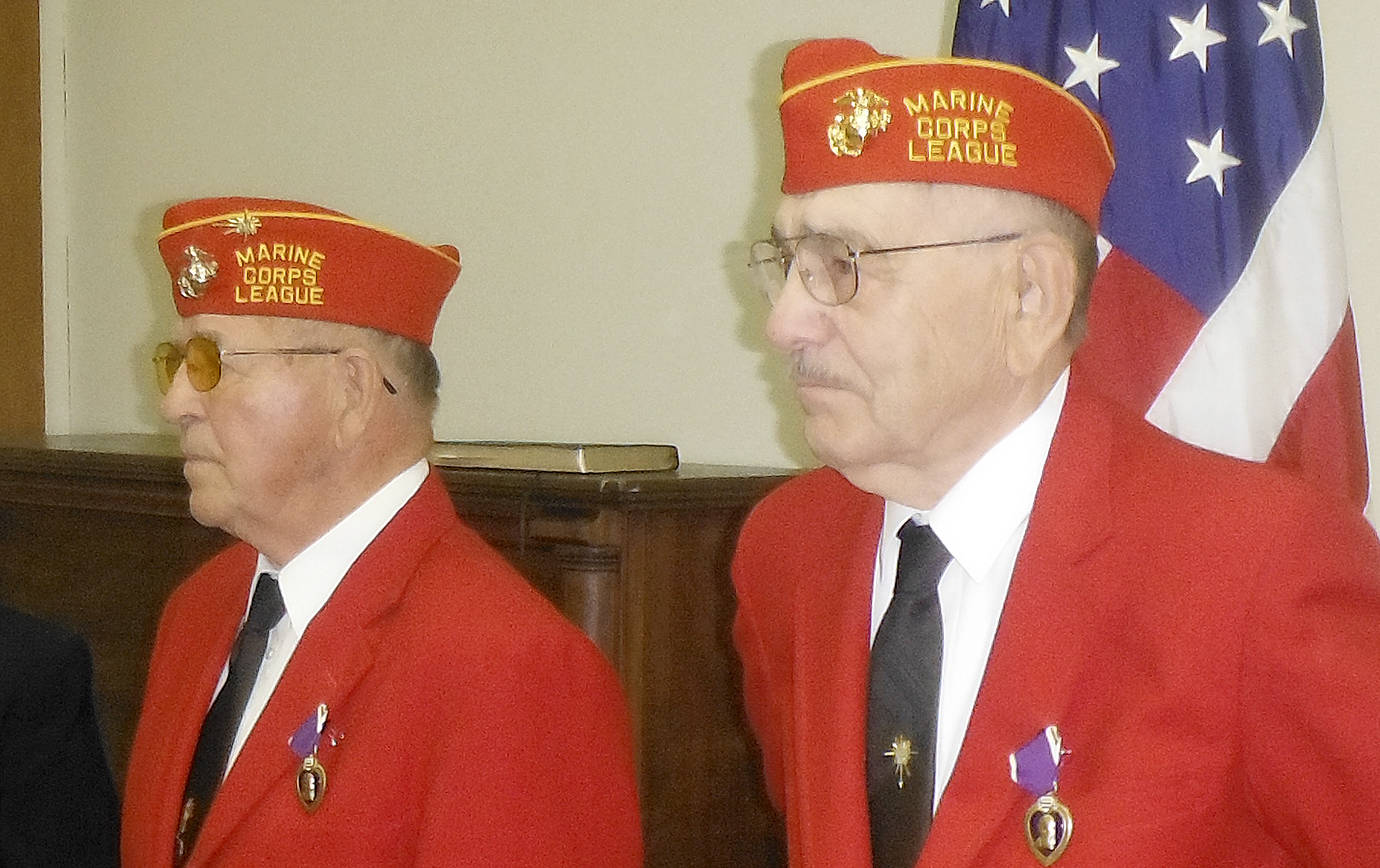In November 1950, two young Marines found themselves in one of the fiercest — and deadliest — battles in U.S military history. In the bitter cold of central Korea, they and 30,000 other U.S. troops found themselves surrounded by a Chinese force four times larger than theirs.
The battle at Chosin Reservoir, once called the “Iwo Jima of the Korean War,” was where Irv Stephens and Jim Evans became members of the “Chosin Few,” the name given to the survivors of the ferocious battle. Stephens was wounded in the fray; Evans made it through, only to be wounded himself the following year on another mission into North Korea.
Both men earned Purple Heart medals, but never received them. They both settled into civilian life in Grays Harbor County after the war, and on occasion would check on the status of their medals. Now, 66 years later, both finally have their well-earned medals, thanks to the efforts of the Department of Veterans Affairs and a fellow local Marine veteran.
Stephens and Evans, now ages 85 and 89 respectively, stood stoically as they were surprised at a Veterans Affairs meeting in Aberdeen last week with their medals, which were presented by Veterans Affairs Director Alfie Alvarado-Ramos. Neither was told ahead of time of the long-overdue presentation.
Both Marines then reflected on their experiences in the war, noting that while the physical injuries heal, the emotional trauma of experiencing such a bloody conflict at such a young age lingers to this day.
Evans, who lives near Hoquiam, took a two-ounce chunk of shrapnel as he and his Baker Company brothers were crossing the Han River in central Korea, heading into North Korea, in midsummer 1951. He was 23 years old. The memories of his time in the conflict still affect him today, not so much his own injury, but thoughts of the thousands of Marines who never got to come home.
“I had people on both sides of me fall,” he said. “There are some bad nights, but I don’t wake up screaming too often.” Though he’s near 90 now, to this day if someone comes up from behind him and surprises him, “I’m likely to jump.”
Stephens, of Raymond, said he “remembers some” about the bitter winter of 1950 when Chinese launched their overwhelming assault around the Chosin Reservoir. He was 18 and serving with the 3rd Battalion 1st Marine Division, known as the 311, when the Chinese attacked.
“We had been on patrol for 36 hours just west of Hagaru (just south of the reservoir),” recalled Stephens. “We were setting up a perimeter around an airstrip to take the wounded and dead so I went to hang grenades.”
Finally, when allowed a rest, he was in a tent tending to his frostbitten feet — that winter temperatures dropped to minus-35 degrees — when bullets began to fly through the tent. “A shell went off nearby and fractured my arm and gave me a concussion,” said Stephens. “I may have been on the last plane out of there before it was overrun with Chinese.”
Both men received word from the military indicating they would be receiving Purple Hearts. However, missing paperwork left both warriors out of the loop. Over the decades both have called about getting their medals several times. Once Evans said he “called the Navy and they said they were out of medals. How can the Navy be out of medals?”
Veterans Affairs officials got wind of the missing medals from Marine Chaplain Ron Black — who was at the local ceremony — and went to work, eventually finding the proof necessary for the medals to be awarded. Both men said they were happy to get the medals, that they offered some sense of closure, but emphasized the medals weren’t so much for them, but their kids and grandkids.
“It’s for my children,” said Stephens.
Both men were also presented with the Embassy of the Republic of Korea Ambassador for Peace Medal, a token of appreciation for the sacrifices made by U.S. soldiers who fought in the conflict.


